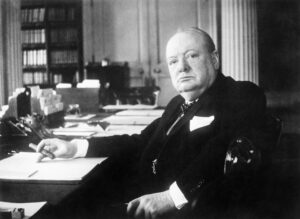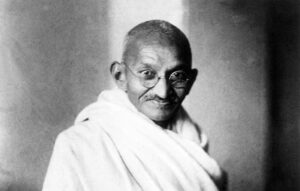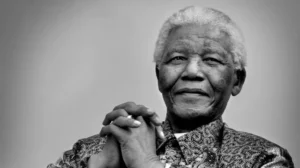
Artikel
16
november
Learning from Leaders: Lessons from History’s Great Minds
History is a treasure trove of wisdom, offering us a chance to learn from the experiences, triumphs, and failures of those who came before us. Throughout the ages, great leaders have emerged, leaving behind legacies that continue to inspire and guide us today. By studying the lives and actions of these remarkable individuals, we can glean valuable lessons that are relevant to our own personal and professional development.
1/ Visionary Thinking: Leonardo da Vinci

Leonardo da Vinci, a polymath of the Renaissance, serves as a shining example of visionary thinking. His insatiable curiosity and innovative mindset led him to excel in various fields, from art and science to engineering and anatomy. Da Vinci’s ability to see connections between seemingly unrelated disciplines teaches us the importance of embracing a holistic approach to problem-solving. In our own lives, we can strive to cultivate a broad range of skills and perspectives, fostering creativity and innovation.
2/ Resilience and Perseverance: Winston Churchill

Winston Churchill, the stalwart leader during World War II, faced numerous setbacks throughout his political career. His famous speeches and unwavering determination became symbols of resilience in the face of adversity. Churchill’s example teaches us the value of perseverance and the ability to stay steadfast in pursuit of our goals. When confronted with challenges, remembering Churchill’s words – “Success is not final, failure is not fatal: It is the courage to continue that counts” – can be a powerful motivator.
3/ Ethical Leadership: Mahatma Gandhi

Mahatma Gandhi, the leader of the Indian independence movement, is renowned for his commitment to nonviolent resistance and ethical leadership. His emphasis on truth, integrity, and justice provides a timeless lesson in the importance of ethical conduct. In our own roles as leaders, whether in the workplace or within our communities, we can draw inspiration from Gandhi’s principles and strive to lead with authenticity and a commitment to moral values.
4/ Adaptability: Nelson Mandela

Nelson Mandela, the iconic anti-apartheid revolutionary and former president of South Africa, demonstrated extraordinary adaptability. Despite spending 27 years in prison, Mandela emerged with a spirit of forgiveness and reconciliation, leading his nation through a peaceful transition to democracy. Mandela’s ability to adapt to changing circumstances reminds us of the importance of flexibility and open-mindedness in navigating the complexities of life and leadership.
5/ Empowering Others: Eleanor Roosevelt

Eleanor Roosevelt, the longest-serving First Lady of the United States, was a trailblazer for human rights and women’s rights. Her leadership style was characterized by a commitment to empowering others. Roosevelt once said, “A good leader inspires people to have confidence in the leader, a great leader inspires people to have confidence in themselves.” This underscores the significance of fostering a collaborative and supportive environment, where individuals are encouraged to reach their full potential.
Learning from the great minds of history allows us to tap into a wealth of knowledge and inspiration. Whether it’s da Vinci’s visionary thinking, Churchill’s resilience, Gandhi’s ethical leadership, Mandela’s adaptability, or Roosevelt’s emphasis on empowering others, each leader offers a unique set of lessons that can shape our own journeys. By reflecting on these historical figures, we gain insights that can guide us in navigating the challenges of our time, ultimately becoming better leaders in our personal and professional lives.
What's your reaction ?
Follow us on Social Media
Some Categories
Recent posts

April 26, 2024
Aandachtspunten bij een geldlening tussen een ouder en een kind

April 26, 2024
Hoe gaat u de zorg organiseren en wat zijn de kosten?

April 26, 2024
Wonen met zorg: de belangrijkste aandachtspunten op een rij

April 26, 2024
Hoe werkt u als dga aan een zorgeloze financiële toekomst?

April 26, 2024
Belastingvrij schenken in 2024

 Inloggen
Inloggen
 Registreren
Registreren






Comments (0)
No reviews found
Add Comment